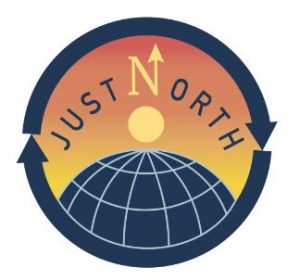A fair and equitable low carbon future depends on a just transition which, in turn, requires leadership. Where the Arctic is concerned, this leadership is currently lacking. To gauge which states are most likely to provide leadership in the global energy transition, a quantitative rank-percentile assessment of 21 Arctic Council members and Observer states was conducted, using measures relevant to the just transition.
McCauley, Pettigrew, Bennett, Todd, & Wood-Donnelly
A fair and equitable low carbon future depends on a just transition which, in turn, requires leadership. Where the Arctic is concerned, this leadership is currently lacking. To gauge which states are most likely to provide leadership in the global energy transition, a quantitative rank-percentile assessment of 21 Arctic Council members and Observer states was conducted, using measures relevant to the just transition. Data from multiple open-access sources were combined, creating a model to ‘evaluate energy and equity aspects of Distributional, Procedural and Restorative’ justice (DeePeR). Results suggest normative leadership on a just transition for the Arctic comprises international climate contributions in line with carbon emission records and a commitment to both fair and green jobs. Reflections are made on the positive and negative effects of a more involved EU for the just transition agenda in the Arctic.
Read the full article:
https://www.sciencedirect.com/science/article/pii/S0959378022000188
JUSTNORTH
JUSTNORTH is a project designed to explore the multitude of ethical systems that coexist in the Arctic, as a starting point to assess the viability of new economic activities in the region. For the millions of people who live both inside and outside the Arctic and are affected by these economic activities, decisions are made through utilitarian ethical principles: viability of an activity is based on profitability and technical feasibility, with little regard to questions of whether it is ethically right or wrong for the impacted human populations or the environment. Global climate change has launched intense speculation on Arctic resources. Increasing geopolitical tensions among some of the Arctic states increases the importance of respecting different value systems while finding common values to help strengthen the links between Arctic and non-Arctic entities. Significant practice and policy gaps in existing Arctic economic activities have led to development that is unsustainable.
Through understanding current practices of development in the Arctic through the lens of 18 case studies, JUSTNORTH aims to develop conceptual frameworks, indices and a negotiation tool, for reconciling multiple ethics and value systems. These will provide a cornerstone for determining the viability of economic activities in the Arctic, as well as clarify policy, legal, and regulatory pathways for implementing ethic-based decision-making principles.
Global climate change has launched intense speculation on Arctic resources. Increasing geopolitical tensions among some of the Arctic states increases the importance of respecting different value systems while finding common values to help strengthen the links between Arctic and non-Arctic entities. Significant practice and policy gaps in existing Arctic economic activities have led to development that is unsustainable.
Through understanding current practices of development in the Arctic through the lens of 18 case studies, JUSTNORTH aims to develop conceptual frameworks, indices and a negotiation tool, for reconciling multiple ethics and value systems. These will provide a cornerstone for determining the viability of economic activities in the Arctic, as well as clarify policy, legal, and regulatory pathways for implementing ethic-based decision-making principles.
Project details
- Project title: “Toward Just, Ethical and Sustainable Arctic Economies, Environments and Societies”
- Funding scheme: European Union Horizon 2020 Programme (EU H2020, Grant agreement ID: 869327)
- Duration: 3 years (1 June 2020 – 30 November 2023)
- Project coordinator: Uppsala Universitet, Dr. Corine Wood-Donnelly
- Project website: www.justnorth.eu/
